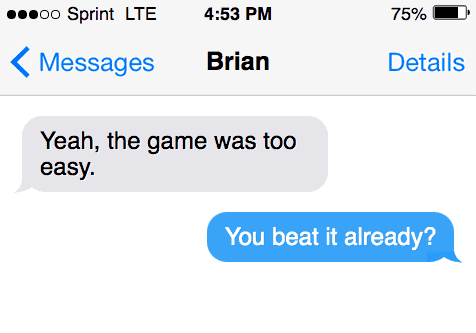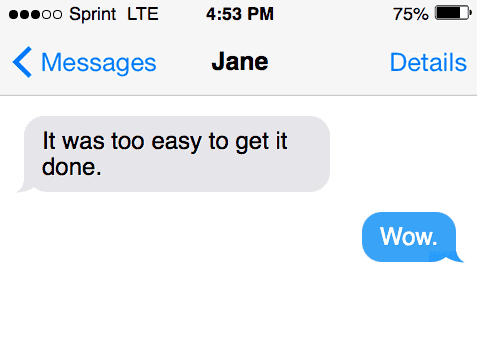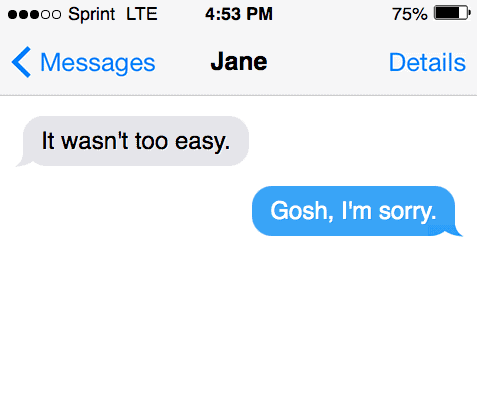Is it “to easy” or “too easy?” How do you correctly describe something in American English if something is easy to do? Why is it common for “too easy” to get misspelled?
What does “too easy” mean?
Typically, when something is easy, it is very easy. A common expression and phrase is saying something is “too easy.” This gets said when someone wants to emphasize how well they feel it can be done.
Another way to think of “too easy” is that something is excessively easy.
Most commonly, it’s used to brag or show confidence.
“Too easy” is considered an idiom to say something is “very simple or effortless.”
For example, “I have so much knowledge on this subject, it will be too easy to get the job done. I shouldn’t get paid this much.”

“Too” as an adverb and “to” as a preposition
The word “too” is an adverb. Adverbs can modify adjectives, applying a deeper or greater meaning to the reference.
“Too” is typically providing emphasis.
While “to” is a preposition. And does not modify the adjective. Or to add emphasis.
Meaning of “too easy” (idiom)
“Something that is very simple or effortless, to a deceptive degree.”
- Too easy (something)
- Too easy to do (for someone)
Synonyms for “too easy”
These synonyms help to describe something that doesn’t require effort:
- Effortless
- Uncomplicated
- Quick
- Rudimental
- Obvious
- Breezy
- Unproblematic
- Painless
- Straightforward
- Simple
When writing, use these words instead of “too easy” to avoid American English grammar mistakes. Or in replace of “too easy” when describing something with very little worry about how complicated it could be.

Which is correct, “to easy” or “too easy?”
“Too easy” is correct. Remember, if replacing the word with “very” sounds correct, “too” can also get used. It’s a common spelling mistake to drop the final “o” in “too.”
When something has very little difficulty, it is “too easy” (using “too,” the adverb that can modify adjectives). The context of the use is essential. It should refer to a situation, event, task, or person.
Correct examples:
“It was really too easy to get the job done. I couldn’t charge them more than what I originally quoted.”
“The game was too easy to play, I needed something more challenging.”
“When we arrived, it seemed too easy to park. I knew that something was wrong. We found out that we had gone to the wrong place for the concert. It was funny!”
Incorrect examples:
“I thought it was to easy for everyone to see what the next step would be.”
“We thought we were going to easy on you. And that’s why we had to start playing the game more intensely.”
“Planting flowers is to easy. There are plenty of guides on Google or YouTube about how to plan them effectively. Do you need help?
Why is it common for “too easy” to get spelled incorrectly?
One reason might be that people often type quickly and don’t proofread their work.
Another reason might be that people might not know the correct spelling.
Most spellcheck tools will find “to easy” get misused in writing. Free tools like Grammarly can quickly find “to easy” in written text.
Alternatives to saying something is “too easy”
If you want to sound more sophisticated, you can say something is “a piece of cake.” This means it’s very easy to do.
Here are some other phrases you might hear:
- That was easy!
- That wasn’t too difficult.
- I didn’t find that hard to do.
- I had no trouble doing it.
- It was a breeze!
These expressions mean the same thing: something was easy to do.
How to remember to use “too” rather than to”
Replace the word with “very,” it’s probably “too.” It’s a common spelling mistake to drop the final “o” in “too.”
Here’s a helpful tip: If you remember that “to” has one letter and “too” has two letters, that might help you remember which spelling is correct.
When something isn’t “too easy”
It’s common for something to get referred to the inverse of “too easy.” For example, “It took me a lot longer than I originally anticipated, it wasn’t too easy.”
When this is used as a phrase or idiom, the modifier “wasn’t” or “isn’t” is commonly used.
The meaning becomes the complete opposite of, “very simple or effortless.” Rather, it becomes “very difficult and complicated.”
Sources
- Too easy – Idioms by The Free Dictionary
- Too easy – Urban Dictionary
- What Do Adverbs Modify? – YourDictionary
- Adverb Definition & Meaning – Merriam-Webster
- What Are Modifiers? How to Use Them Correctly, with Examples
Inside this article
Fact checked:
Content is rigorously reviewed by a team of qualified and experienced fact checkers. Fact checkers review articles for factual accuracy, relevance, and timeliness. Learn more.
Core lessons
Glossary
- Abstract Noun
- Accusative Case
- Anecdote
- Antonym
- Active Sentence
- Adverb
- Adjective
- Allegory
- Alliteration
- Adjective Clause
- Adjective Phrase
- Ampersand
- Anastrophe
- Adverbial Clause
- Appositive Phrase
- Clause
- Compound Adjective
- Complex Sentence
- Compound Words
- Compound Predicate
- Common Noun
- Comparative Adjective
- Comparative and Superlative
- Compound Noun
- Compound Subject
- Compound Sentence
- Copular Verb
- Collective Noun
- Colloquialism
- Conciseness
- Consonance
- Conditional
- Concrete Noun
- Conjunction
- Conjugation
- Conditional Sentence
- Comma Splice
- Correlative Conjunction
- Coordinating Conjunction
- Coordinate Adjective
- Cumulative Adjective
- Dative Case
- Determiner
- Declarative Sentence
- Declarative Statement
- Direct Object Pronoun
- Direct Object
- Diction
- Diphthong
- Dangling Modifier
- Demonstrative Pronoun
- Demonstrative Adjective
- Direct Characterization
- Definite Article
- Doublespeak
- False Dilemma Fallacy
- Future Perfect Progressive
- Future Simple
- Future Perfect Continuous
- Future Perfect
- First Conditional
- Irregular Adjective
- Irregular Verb
- Imperative Sentence
- Indefinite Article
- Intransitive Verb
- Introductory Phrase
- Indefinite Pronoun
- Indirect Characterization
- Interrogative Sentence
- Intensive Pronoun
- Inanimate Object
- Indefinite Tense
- Infinitive Phrase
- Interjection
- Intensifier
- Infinitive
- Indicative Mood
- Participle
- Parallelism
- Prepositional Phrase
- Past Simple Tense
- Past Continuous Tense
- Past Perfect Tense
- Past Progressive Tense
- Present Simple Tense
- Present Perfect Tense
- Personal Pronoun
- Personification
- Persuasive Writing
- Parallel Structure
- Phrasal Verb
- Predicate Adjective
- Predicate Nominative
- Phonetic Language
- Plural Noun
- Punctuation
- Punctuation Marks
- Preposition
- Preposition of Place
- Parts of Speech
- Possessive Adjective
- Possessive Determiner
- Possessive Case
- Possessive Noun
- Proper Adjective
- Proper Noun
- Present Participle
- Prefix
- Predicate




